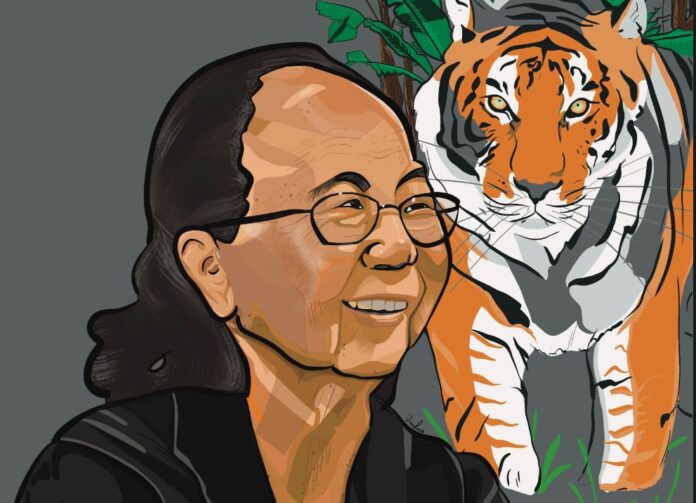
By Sunita Sohrabji, Health Editor at Ethnic Media Services
The Khmer, Laotian, Viet, and Hmong communities collectively make up more than 3.3 million residents in the US, yet are largely invisible.
“People only reach out to our elders when they want to talk about the war. Our people are so much more complex than that,” said Jessica Eckerstorfer, co-director of programming and operations at the Minneapolis, Minnesota-based South East Asian Diaspora Project.
Minnesota’s Southeast Asian population is one of the largest in the US, and includes more than 88,000 Hmong Americans.
Planting SEADS

The SEAD Project is one of five organizations involved with Asian Americans Advancing Justice-AAJC’s Narrative Change and Caregiving Project. The initiative is funded by the Robert Wood Johnson Foundation. For the initiative, the SEAD Project created an anthology of 18 stories told by elders and captured by a young family member. The book “Planting SEADS – Knowing Our Joy” was released Dec. 2, 2023.
Many of the stories are set in the US, while others are rooted in Southeast Asia. Each story is translated into the heritage language of the storyteller and is accompanied by artwork created specifically for the story. The anthology is also filled with family photos, some from half a century ago.
In one tale, a mother teaches her daughter how to flirt, while telling her about the first boy she loved, a secret tryst hidden from her parents. Another tells the story of a Laotian fisherman: The Man Who Could Catch Anything.”
Secret War
“The Singing Gardener” tells the story of a teenager who lived in a refugee camp, but made her way to the US to work as a babysitter in Minnesota. “My mom compares music to food. The joy that music brings us in nourishment,” writes the storyteller, who goes on to describe a trip to Paris with her parents, and the food they ate there.
“Who I’ll Never Forget” is the story of a family fleeing their home amid the “Secret War,” and settling in the US. Eckerstorfer’s favorite story is about a Khmer woman who picks blueberries for a living, while trying to prove that she is as tough as her male counterparts. One day in the fields, she lets loose a loud fart and a laugh, to prove her grit to her co-workers.
“All of us on staff are Southeast Asian folks. So being able to tie into our community wasn’t hard. It was actually overwhelming because way more asked to join the program than we had space,” said Eckerstorfer.
Resilience
Younger family members were guided in three sessions about the concepts of storytelling and story collection. “And there was already that familiarity of being a family member, of having that relationship that made bringing the elders into the program much easier,” she said.
Prevailing themes throughout the anthology are the struggles and joys of building new lives, completely from scratch. Resilience is also a theme that prevails throughout the book. “So many of our elders, whether it was the refugee camps or being separated from family, losing family members, even the process of immigration of coming over here and finding asylum, they found humor and person-hood and strength, and a real love for family. That comes through all of these stories,” said Eckerstorfer. “You’d be talking about really difficult things, but then but also talking about the beauty and the care everyone has for one another.”
“After the program was finished, I had so many people say this was their favorite experience of the year. Some people actually had their elders read their stories at the event, and people were crying. It was really beautiful,” said Eckerstorfer. “But I think the biggest impact to was everyone seeing their artwork. Being able to see familial representations honored was really important, especially for stories that they hadn’t heard before.”
In the second year of the initiative, the SEAD Project will commemorate the 50th year of the fall of Saigon, which ended the Vietnam War. The organization is planning to collect 8 more stories and retell them in a performance art format that will tour around the state.
“We’re getting visibility,” said Eckerstorfer. “We have Southeast Asian folks who are in political positions. We’re seeing our 2nd and 3rd generation folks grow into occupations that our 1st generation folks never even would have thought of before. So we’re seeing those small steps taking place.”



